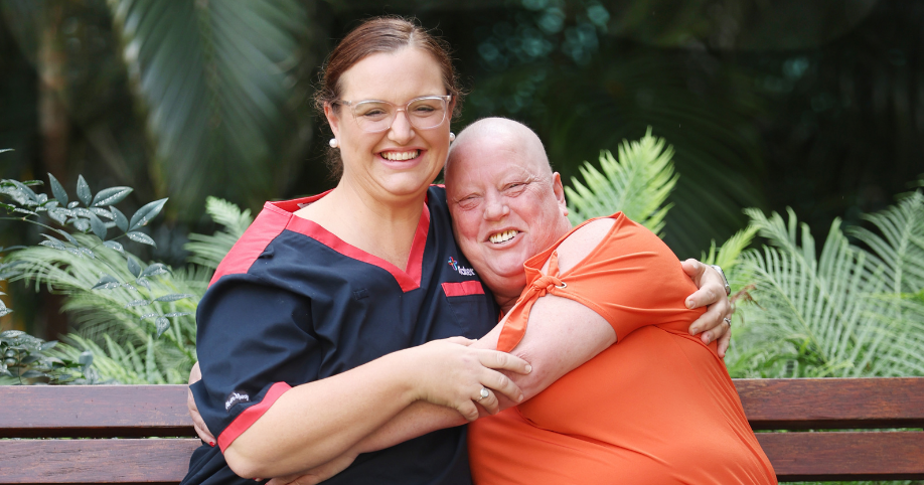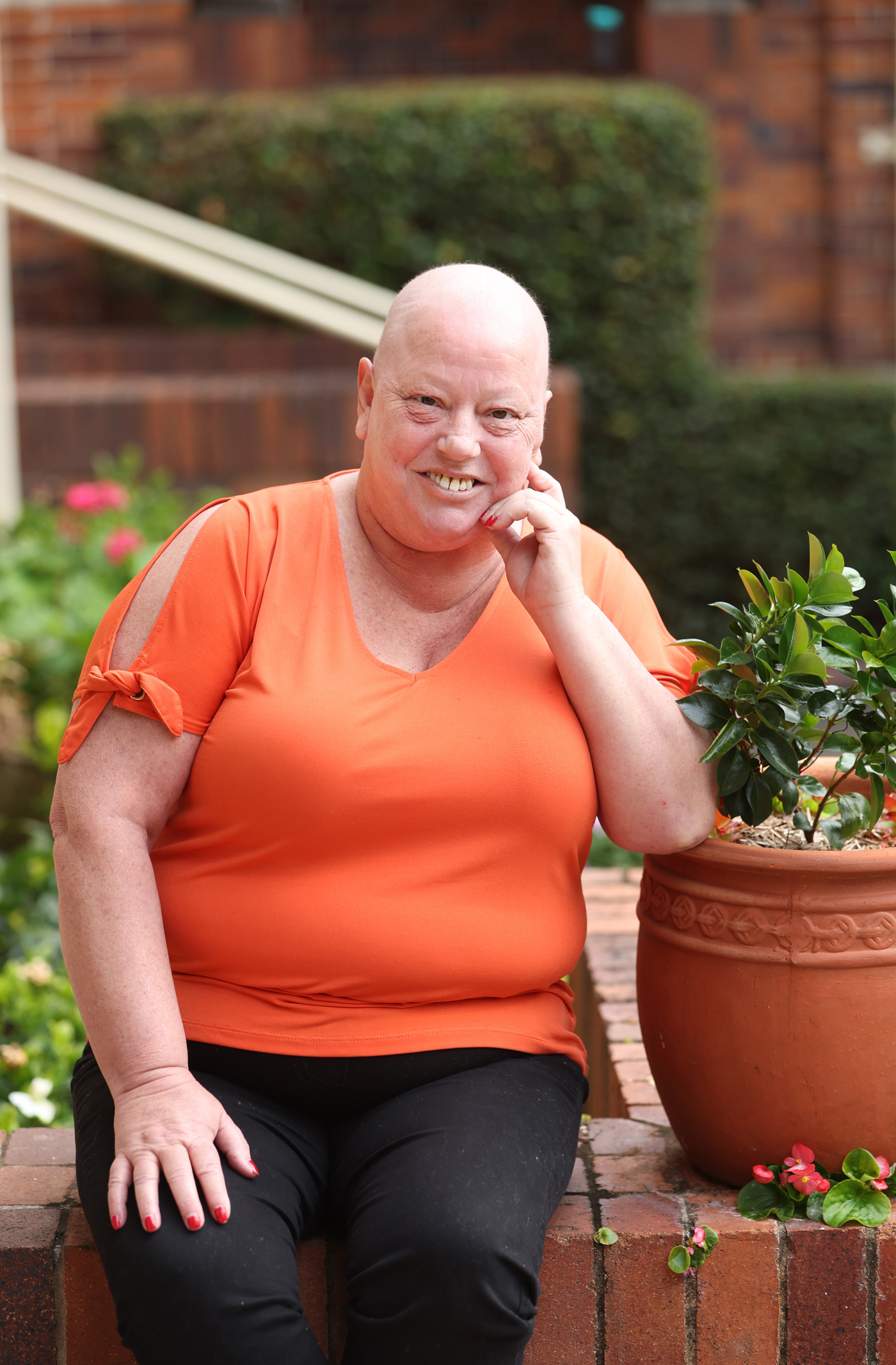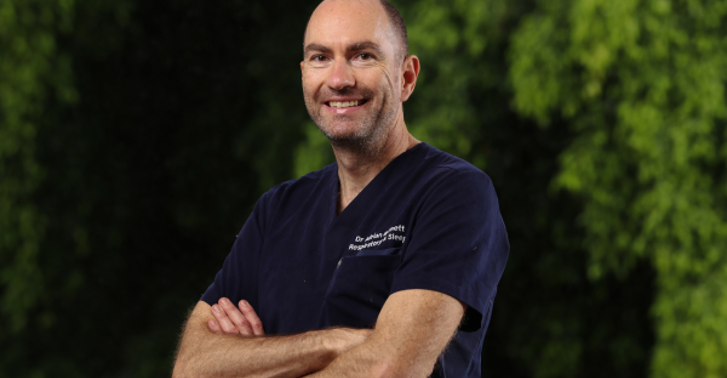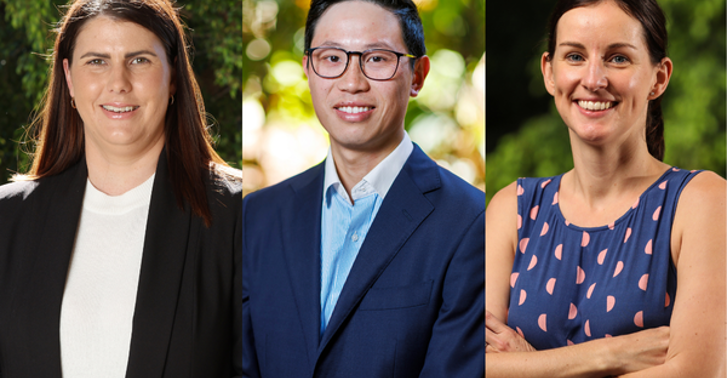
Fighting cancer can be the loneliest journey in the world – especially for patients in the outback.
But cancer patients living in Queensland’s furthest corners are now able to participate in potentially ground-breaking clinical trials of new therapies, including medicinal cannabis, thanks to an innovative new teletrial methodology.
Jacqualine Poole, 53, who lives in the tiny town Aramac—127km from Longreach and with a population of just 372—is officially the most remote Australian patient to have ever participated in an investigational drug teletrial.
The mother-of-four was diagnosed with advanced endometrial cancer in January this year. She had initially dismissed symptoms, including heavy bleeding, but when the pain escalated to “labour-like contractions”, she sought help.
A CT scan at Longreach Hospital revealed a mass in her cervix. Following a hysterectomy, she received devastating news that she had stage 4 endometrial cancer.
Since then, Ms Poole has made the 12-hour journey from Aramac to Mater Hospital Brisbane every two-and-a-half weeks for chemotherapy. While at the hospital she saw a poster about the MedCan 3 teletrial, which is investigating the use of medicinal cannabis to ease cancer-related symptoms.
MedCan 3, coordinated by Mater Palliative and Supportive Care Research under the leadership of Professor Phillip Good, is exploring the effectiveness of tetrahydrocannabinol (THC) and cannabinol (CBD) oil to manage symptoms such as pain, nausea and appetite loss in cancer patients.
The trial is double-blind and placebo-controlled, meaning participants do not know it they are receiving the medication or a placebo.
So far 92 patients have participated in the trial, including seven via teletrial, which sees the medication or placebo delivered to the nearest hospital and passed to the patient in person.
Telehealth reviews then occur between the participant and the clinical trial team at Mater Research.

While she doesn’t know which product she received, Ms Poole has now completed the trial and says the experience was “life-changing”.
“Before the trial, I was a walking zombie,” Ms Poole said.
“I couldn’t hold a conversation. Then suddenly, I could. It took the edge off the sickness and made me so much more comfortable. I felt cognitively better with so much less brain fog.”
She credits the support from both the Mater and Central West Hospital and Health Service team at Longreach Hospital for making the teletrial experience so positive.
“I really want to thank the clinical trial teams at Mater Hospital Brisbane and Longreach, who were all just incredible,” she said.
“My Longreach nurse drove two hours to Aramac just to check on me. They all went above and beyond.”
Ms Poole was the first clinical trial participant for the Central West Hospital and Health Service and the first patient to receive an investigational drug in a Modified Monash Model 7 (very remote) location in Australia.
Prof Good said palliative care patients can experience a range of distressing symptoms and those living in rural and regional areas had fewer options for generalist and specialist healthcare services.
“Access to trials of new medications, such as medicinal cannabis, to reduce symptom problems, has previously been limited in regional, rural, and remote Queensland,” said Prof Good.
“The teletrial methodology will close this equity and access gap and enable all Queenslanders to benefit from innovative healthcare options and novel treatments.”
Mater has been studying medicinal cannabis in palliative care patients with advanced cancer since 2018 and currently leads a national collaborative research program funded by grants from the Medical Research Future Fund and National Health and Medical Research Council.
Three randomised placebo-controlled trials (RCTs) have been launched using medicinal cannabis products with differing formulations of tetrahydrocannabinol (THC), and Cannabidiol (CBD).
Findings from the first RCT, using a CBD oil formulation, found the product was safe and well-tolerated by patients, but was not more effective than a placebo in relieving symptoms.
Prof Good said more research was needed of different medicinal cannabis formulations before a product could be registered and accessed at an affordable rate by patients.
Australian Teletrial Program Director Kaye Hewson says teletrial clusters have been established nationwide across all medical specialties, with over 1,300 participants in regional, rural, and remote areas now taking part.
“88 per cent of clinical trial sites are located in cities, forcing patients outside of metropolitan areas to travel long distances to participate,” Ms Hewson said.
“This comes at both a financial and mental burden cost for the patient and limits the areas where clinicians interested in medical research can work. Any reduction we can make in the number of people travelling for their healthcare needs will benefit not only the patient, but the whole community and local healthcare service.”
The program implementation is managed through the Queensland Regional Clinical Trial Coordinating Centre (QRCCC) in Townsville, and Ms Hewson says they are the first port of call for any clinicians, researchers or commercial sponsors interested in reaching patients outside of city areas.
“The QRCCC is a mobile workforce that works with local health service sites to ensure they are trained in clinical trial protocol requirements and Good Clinical Practice. They work through site feasibility, right up to and including first patient visits, setting up that service capacity and capability to run more teletrials in the future,” Ms Hewson said.
Ms Poole is continuing her treatment with the endometrial cancer team at Mater Hospital Brisbane.
As a foster carer and child protection worker for the last three decades, Ms Poole has dedicated her life to helping others and has now become an advocate for women’s health.
“Endometrial cancer is the most common gynaecological cancer in women, but it’s not spoken about enough,” Ms Poole said.
“I want to urge every woman who is experiencing any changes in their period to get it checked and then get it double checked. Don’t just assume changes are a part of menopause.”
To learn more about Med Can 3, email palcareresearch@mater.org.au or phone 07 3163 6057.
Top image: Jacqualine Poole with Mater Clinical Trial Coordinator Georgie Huggett.



